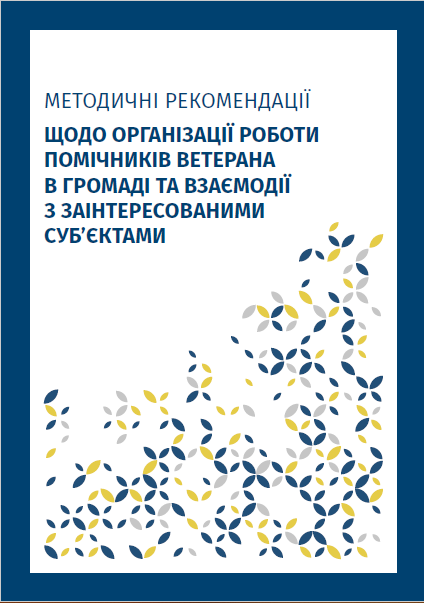Many of our acquaintances joined the defense of Ukraine after Russia’s full-scale invasion. One of them is Oleksandr, who began fighting in early March 2022 and has been serving as a tank operator for almost two years.
Before being deployed to the front lines, he worked as a sales consultant in a home appliance store. During his absence, the store closed down as the business owners moved abroad with no plans to return. For now, Oleksandr cannot demobilize due to the lack of reserves to replace soldiers like him. However, eventually, this will happen—if he survives until then. Like many soldiers, Oleksandr does not plan beyond tomorrow but occasionally wonders about his future after returning home. It’s already clear he will need to find a new job. He says he doesn’t want to return to his previous position as a sales consultant and would prefer to learn a new civilian profession or, ideally, find his true calling. Moreover, Oleksandr has been wounded twice and suffered multiple concussions. Although his injuries were of mild to moderate severity, they have still negatively impacted his overall health. It’s likely he will need years of treatment once he has the chance.
Another acquaintance, Denys, was a former athlete and owned a small gym with his wife, where they were both administrators and trainers. While Denys was serving in the military, his wife managed to keep the business afloat. Unlike Oleksandr, Denys’ workplace still exists. However, Denys suffered severe injuries, and his current physical condition no longer allows him to work as a trainer. Additionally, his psychological state requires months of rehabilitation under the supervision of skilled specialists, who still need to be found.
These are just two examples of the challenges faced by combat veterans returning to civilian life. Before January 1, 2022, there were about 500,000 veterans in Ukraine; now, the number is estimated to be one million. After the war ends, this figure will increase significantly. Most of these individuals were self-sufficient before the war, but that doesn’t mean they will be able to take care of themselves as effectively afterward. Circumstances change, people change, and their surroundings change.
All veterans have undergone the formation of a new identity as warriors, gaining new responsibilities and connections while severing most of their old ties. They’ve lost skills critical for civilian life, such as long-term planning. Many have lost their health or even limbs. Almost all will require extensive psychological support and assistance. After the harsh experiences of war, with vastly different priorities and needs, these individuals face a difficult journey to reintegrate into civilian life. They need time to feel part of civilian society again, care for themselves, and rediscover who they are. The task of the state and society is to make this transition as smooth as possible.
A Systematic Approach to Veterans’ Reintegration
The Ministry of Veterans Affairs has introduced a promising project to address these challenges comprehensively. It involves establishing the role of veteran assistants and creating a network of veteran service offices. Let’s explore how these institutions and specialists will support veterans during their reintegration.
The reintegration process occurs within communities, so the service offices will operate locally. Specialists in these offices will support veterans in various areas, including physical and mental health, housing, economic independence, professional development, and social security.
Take Oleksandr, for example. He will need a new job, profession, or calling, along with physical rehabilitation for his injuries. A veteran assistant will assess his needs, provide information about retraining and employment opportunities, and connect him with veteran development centers and specialists who can help him identify a suitable career path. Additionally, the assistant will gather information about healthcare facilities and professionals experienced in treating his specific injuries and provide it to him.
Denys, on the other hand, will require psychological support. Veteran service office staff will compile a list of specialists and organizations offering psychological assistance and share it with him. They will also organize training for community family doctors on providing basic physical and psychological care for veterans and their families. Furthermore, they can advise Denys’ wife on securing funding for maintaining, expanding, or repurposing their business, informing her about grant programs and funding sources.
These examples represent just a fraction of the responsibilities veteran assistants and service offices will undertake. Their primary focus will always be the specific needs of individual veterans, gathered through direct interaction. Moreover, assistants will facilitate effective communication between veterans, their families, public institutions, and community members. This will help create a supportive environment that aids veterans in transitioning back to normal life. An equally important task will be assessing veterans’ potential and channeling it toward community and national development, such as involving them in the patriotic education of children and youth.
Pilot Implementation and Future Expansion
In 2023, the project to establish veteran service offices was in its pilot phase and partially implemented in several communities. Dozens of veteran assistants received training. In 2024, the initiative is set to expand nationwide, incorporating lessons learned from the pilot stage. Funding has been allocated in the state budget to support the implementation of veteran assistant roles across Ukraine. While some practical aspects are still being fine-tuned, the project is set to launch fully.
Veteran assistants will be guided by methodological recommendations, which serve as a comprehensive manual based on both Ukrainian and international experiences in veteran reintegration.
Shared Responsibility
While state and local authorities bear the responsibility for helping veterans, society must also play its part. Respecting and supporting veterans, helping them reintegrate, and showing gratitude is a duty for every responsible member of a healthy society.
Antonina Domikan, Viktoria Voronina, Center for Security Studies “CENSS”
This publication was prepared within the framework of the Folke Bernadotte Academy in Ukraine, with financial support from Sweden. The views and conclusions expressed are those of the authors and do not necessarily reflect the official position of the Folke Bernadotte Academy or the Swedish government.


